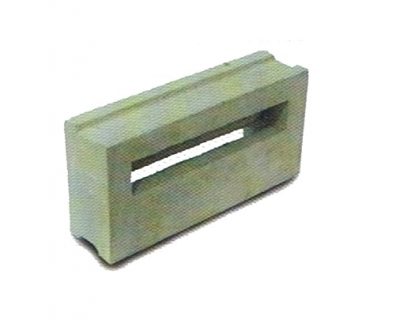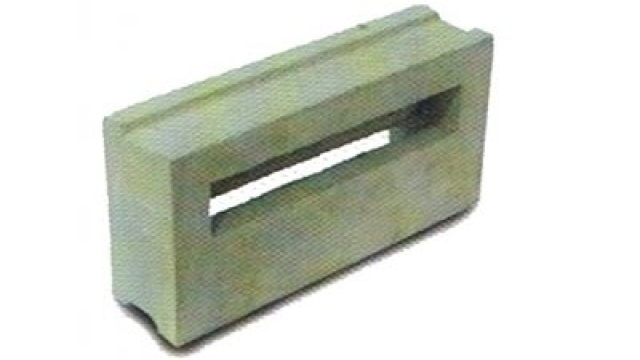Are you looking for ways to improve the airflow in your space? Look no further than ventilation blocks! These innovative concrete pavers, also known as CMUs (concrete masonry units), are designed to enhance ventilation in various applications. From railing systems to precast concrete civil products, retaining wall systems to drain covers, ventilation blocks have proven to be a powerful solution for creating a healthier, more comfortable environment. Let’s explore the many benefits and uses of these remarkable blocks.
Ventilation blocks not only serve a functional purpose but also add aesthetic appeal to any setting. Their unique design allows air to circulate, reducing humidity and promoting airflow. Whether you’re looking to enhance air quality in residential, commercial, or industrial spaces, ventilation blocks offer a versatile solution. With their strong and durable construction, these blocks can withstand the test of time, making them a cost-effective choice for long-lasting ventilation improvements.
The possibilities are endless when it comes to incorporating ventilation blocks into your project. From simple air circulation solutions for retaining wall systems to more complex architectural designs for railing systems, these blocks provide flexibility and adaptability to meet your specific needs. Additionally, their compatibility with drain covers ensures efficient water drainage, preventing any potential issues that could arise from stagnant water.
Embrace the power of ventilation blocks and breathe easy knowing that you have taken a step towards creating a well-ventilated and comfortable space. With their durability, versatility, and aesthetic appeal, these blocks are an invaluable addition to any construction or renovation project. So, whether you’re looking to improve air quality, enhance visual appeal, or optimize drainage systems, consider the immense benefits that ventilation blocks can offer.
Benefits of Ventilation Blocks
Ventilation blocks are a highly versatile and practical solution for various construction projects. These concrete pavers, also known as CMUs (concrete masonry units), offer numerous benefits that make them a popular choice among builders and designers.
Improved Air Circulation: One of the primary advantages of ventilation blocks is their ability to enhance air circulation in buildings. These blocks feature a unique pattern of holes or open spaces, allowing air to flow through them. By installing ventilation blocks in walls or other structures, fresh air can easily enter and stale air can be efficiently expelled, creating a more comfortable and healthier indoor environment.
Enhanced Structural Stability: Besides their ventilation capabilities, these blocks also contribute to the structural integrity of a building. Made from precast concrete, ventilation blocks are durable and sturdy, providing strength and stability to various structures. Whether it’s a retaining wall system or a railing system, ventilation blocks offer reliable support, ensuring the long-term stability of the construction.
Effective Drainage System: Ventilation blocks also serve as efficient drain covers, preventing water accumulation in areas prone to flooding or excess moisture. The design of these blocks allows water to drain through them, reducing the chances of water damage or other related issues. Furthermore, the open spaces in ventilation blocks help to mitigate hydrostatic pressure, making them a valuable component for effective water management in building projects.
In conclusion, ventilation blocks offer a range of benefits, encompassing improved air circulation, structural stability, and effective drainage systems. With their versatility and durability, these concrete pavers have become an indispensable part of various precast concrete civil products, contributing to the functionality and longevity of construction projects.
Versatility of Precast Concrete Products
When it comes to construction materials, precast concrete products offer exceptional versatility. Ventilation blocks, concrete pavers, CMUs, railing systems, and drain covers are just a few examples of the wide range of precast concrete civil products available in the market today. These products are known for their durability, strength, and reliability, making them a popular choice for various construction applications.
One of the main advantages of precast concrete products is their ability to be easily customized and tailored to specific project requirements. Whether it’s designing unique ventilation blocks for improved airflow or creating intricately patterned concrete pavers for a visually appealing walkway, precast concrete products offer endless possibilities.
Additionally, precast concrete products are highly adaptable to different construction methods and techniques. They can be integrated seamlessly into retaining wall systems, providing both structural stability and aesthetic appeal. Moreover, their modular nature allows for efficient installation and future modification if necessary.
The versatility of precast concrete products also extends to their functional properties. Drain covers, for instance, not only provide protection for underground drainage systems but can also be designed to incorporate decorative elements that complement the surroundings. This flexibility in design makes precast concrete products ideal for both commercial and residential projects.
Get Started
In conclusion, precast concrete products, such as ventilation blocks, concrete pavers, CMUs, railing systems, retaining wall systems, and drain covers, offer remarkable versatility in construction. Their ability to be customized, adaptability to various construction methods, and functional properties make them an indispensable choice for modern infrastructure development.
Innovative Solutions for Infrastructure

In the continuous evolution of infrastructure development, finding innovative solutions is crucial to meet the demands of modern society. One such solution that has proven to be effective is the use of ventilation blocks. These versatile concrete pavers, also known as CMUs (Concrete Masonry Units), are revolutionizing the construction industry with their various applications and benefits.
One area where ventilation blocks have made a significant impact is in the installation of railing systems. By incorporating these blocks into railing design, construction professionals can enhance the ventilation and airflow in outdoor spaces while ensuring the safety of pedestrians and users. The unique design of ventilation blocks allows for air circulation, reducing the build-up of stale air and improving the overall comfort of public areas.
In addition to railing systems, ventilation blocks are widely used in the production of precast concrete civil products. Their porous nature helps to regulate the flow of air and water, making them ideal for applications such as drainage systems and retaining wall systems. With their ability to mitigate excess moisture and improve water drainage, ventilation blocks contribute to the durability and longevity of these vital infrastructure elements.
Furthermore, the integration of ventilation blocks into drain covers has revolutionized the functionality of these essential components. By allowing for proper ventilation, these blocks prevent the accumulation of debris and avoid clogging. This innovative solution ensures the efficiency of drainage systems and reduces the risk of flooding, enhancing the functionality and safety of urban environments.
In conclusion, ventilation blocks offer innovative solutions for various infrastructure needs. Their use in railing systems, precast concrete civil products, retaining wall systems, and drain covers demonstrates their versatility and effectiveness in improving public areas. As the construction industry continues to prioritize sustainability and performance, integrating ventilation blocks into infrastructure projects can lead to safer, more comfortable, and more durable urban environments.


